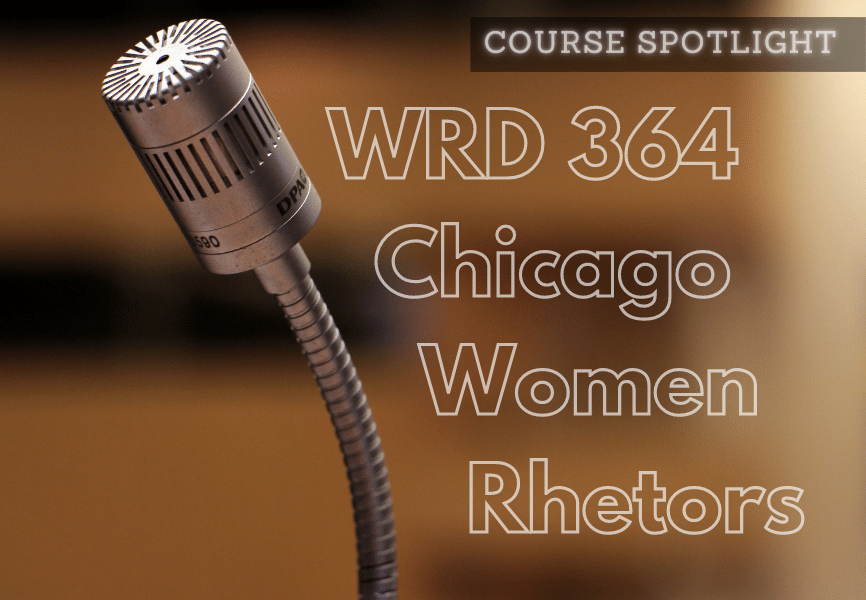A class that hasn’t been taught in a few years, Chicago Women Rhetors will be running next quarter with Dr. Julie Bokser at the helm. Undergraduates with an interest in gender studies, rhetorical traditions, and Chicago history will find themselves at home in this course as they investigate the women writers and rhetors of the Windy City.
Historically and rhetorically minded, the course does more than simply recount the history of these women. Another goal is to see how they have been remembered, how they have contributed to Chicago’s public memory. From museum exhibits to architectural memorials to current practices influenced by these rhetors, students can expect to gain not only an appreciation for this local area of rhetoric and writing but also understand their own memory in regards to it.
Julie had some things to say about the course, and we asked her questions about what her goals are, who will be studied, and why students should take this opportunity.
Talk a little about the class. What’s your goal with the course?
The class examines who the significant women rhetors have been in Chicago’s history. We pay attention to the details of that history, as well as think about why women’s history hasn’t been passed down or commemorated–why important stories and figures seem to be erased from public memory. So the course is about the histories of women speakers in Chicago and the telling of history–a rhetorical endeavor.
Who are some of the rhetors you will focus on, and what kinds of readings can students expect?
We start by reading texts by and about four women who were leaders and activists around the 1893 world’s fair in Chicago: Jane Addams, Bertha Palmer, Ida B. Wells, and Frances Willard. This allows us to paint a picture of all the activity during this period of great change. Then students pick women rhetors they want to know more about. Students’ projects are about who these women are AND how to memorialize them so that we (the class) educate the public.
What sorts of assignments do you have planned?
There are both academic projects, like a paper and presentation on what students are researching, and also a public memorial project. We gather the public memorials into a website that is written and designed by students for that public audience.
Student projects are so cool! They range from an actual collage in homage to innovative dancer Katherine Dunham; to an interview with still-living Pilsen activist Teresa Fraga; to a digital ‘zine about Maurine Watkins, playwright of the famous Chicago, which the musical was later based on (though it wouldn’t have met her approval). We’ve memorialized poets, doctors, celebrities, and mayors (not Lightfoot — yet).
I’m thinking about public memory. Why study the women rhetors of Chicago? When students leave the course, what will they have gained?
It’s important to know our history, and to realize the official versions are still pretty lacking. How we tell history is a fundamental rhetorical activity. And, in light of recent controversies about which statues and other public art should be featured in public spaces, the issues we’re examining are extremely real and relevant.
For those wanting to see the projects Julie mentioned, you can find them at these websites. With course cart now open, students who wish to a part of this should sign up immediately.
